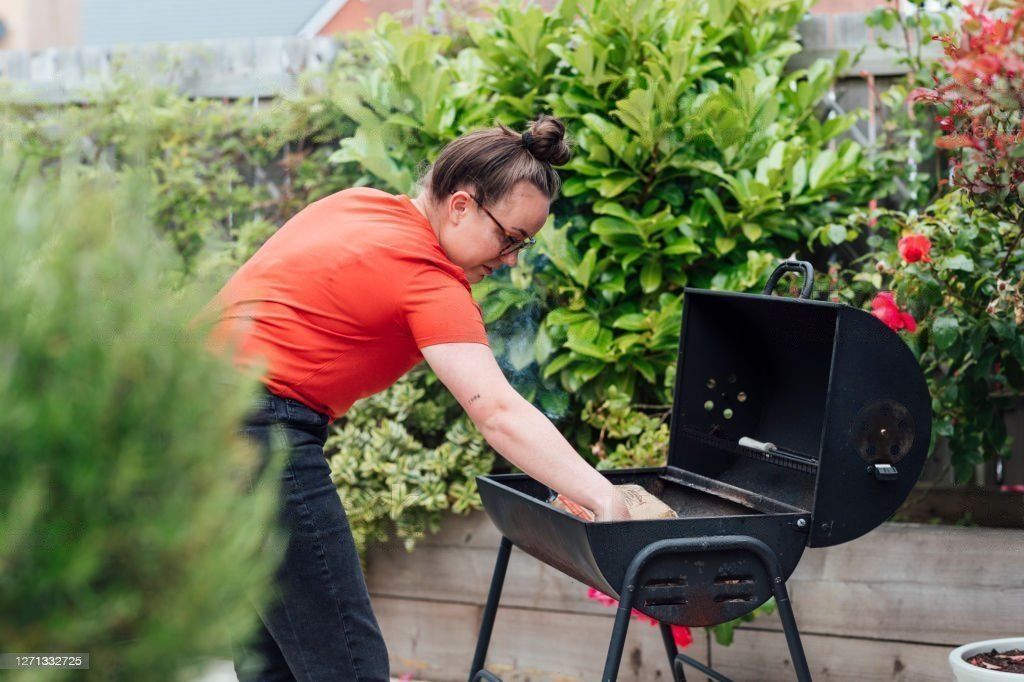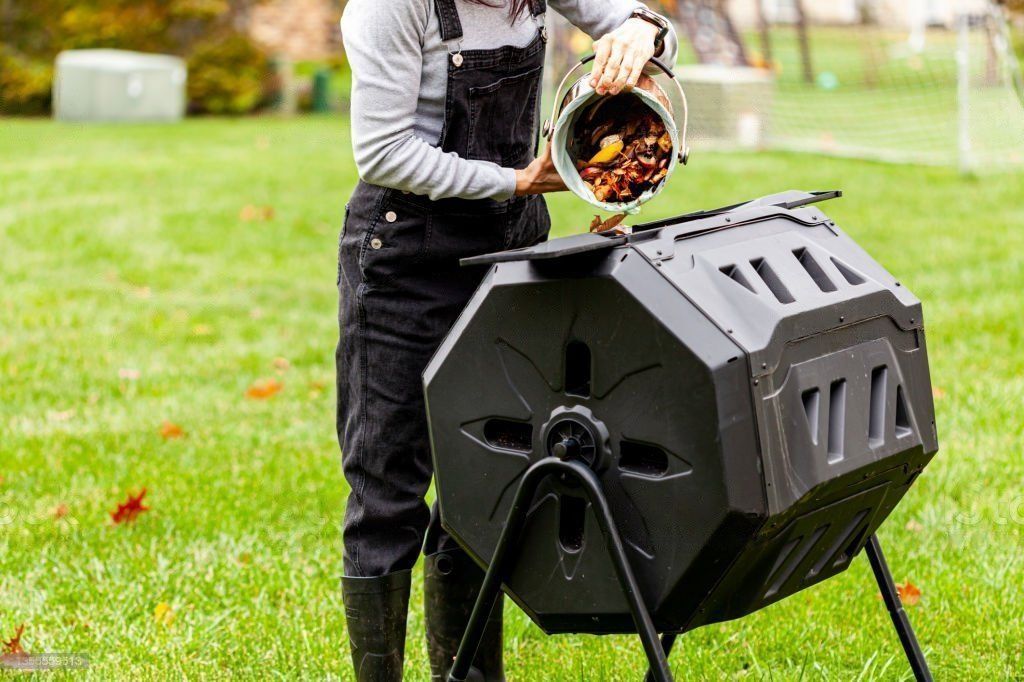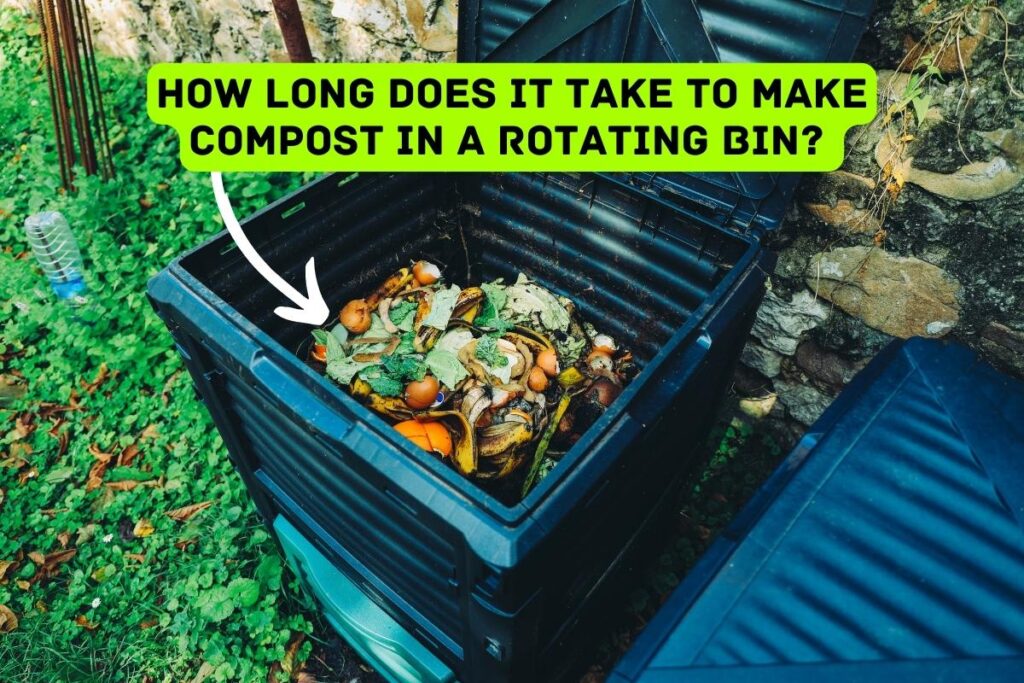
The time it takes to make compost in a rotating compost bin depends on a number of factors, including the size of the container, the type of bin, the ingredients used, the temperature, and the amount of aeration.
So how long compost takes to decompose in a rotating compost bin?
Generally speaking, it takes anywhere from two weeks to two months to make compost in a rotating bin. To speed up the process, you can aerate the bin and make sure to use a mix of green and brown materials.
Although, you can add a compost accelerator to the bin, which will help break down the materials quickly to make compost easier and faster.
Stay tuned until the end of the article to find all the answers you need regarding the required period to make compost in a rotating bin and many more.
How often should you rotate your compost bin?
The frequency you need to spin your compost bin depends on a number of factors and for many people is different. However, you should aim to spin your compost bin at least once a week to feel comfortable about the process.
Some of the factors that affect the frequency of spinning compost bins, include the type of bin you are using, the size of your bin, the ingredients you are composting, and of course the temperature of the place you live.
For example, if you live in a country where most days of the year are sunny and the climate is hot then it is way easier to compost your ingredients than in a country like Norway which is very cold during the year.
Apart from that, rotating your compost bin at least once a week will help to aerate the compost and speed up the decomposition process. If you find that your compost is not decomposing quickly enough, you may need to increase the frequency to two or even three times a week when you spin your bin.
How do you compost with a rotating bin?

If you’re new to composting, you might be wondering how to speed up the process.
But did you know that there are already some tips and tricks to compost faster? In order to get the best possible results, here’s a small guide below that will help you achieve it faster.
Chop up your food waste into small pieces
This will help the composting process a lot because smaller pieces of food will decompose faster because the surface area of the compostable material is increased.
It will also help reduce and break up harder food surfaces in order to be easier to compost. This method lets microbes get into the decomposable material and compost faster.
Also, it is generally accepted that small foods like bananas for example are a lot easier to be composted in comparison with a pineapple that has a hard surface and requires to be cut down into smaller pieces.
Aerate the compost bin
This can be done by stirring the compost regularly or by adding an aeration device to the bin if you want to avoid the process of opening and closing the bin every time.
Although, aeration is very important when it comes to composting food because it is an essential part of microbes and other insects to transform the food into compost. Also, aeration helps you in order to take advantage of your country’s climate in order to let the sun or the hot temperatures help the process. (if you live in a hot country)
Add more nitrogen to the compost bin
Adding more nitrogen to the compost bin is a great way to improve the quality of your compost. Nitrogen is an essential nutrient for plants, and it helps to break down organic matter in the compost bin. By adding more nitrogen to the compost bin, you will help to improve the quality of your compost and make it more nutrient-rich for your plants.
There are a few different ways you can add nitrogen to the compost bin. You can add nitrogen-rich materials such as manure, grass clippings, or coffee grounds.
You can also add a nitrogen-based fertilizer to the compost bin. Whatever method you choose, be sure to add the nitrogen-rich materials to the compost bin in small amounts so that the compost doesn’t become too dense and compacted.
Balance the ratio of green materials to brown materials
To ensure that your compost bin is functioning properly, it is important to maintain a balance of green and brown materials. Green materials are high in nitrogen and help to break down the brown materials, which are rich in carbon.
For some people, the ideal ratio of green to brown materials is 2:1. However there is no correct or wrong opinion because some other people suggest having half green and half brown materials for better results. So, it is up to you whether you want to have more or less green materials in your bin.
You can achieve this balance by adding equal parts green and brown materials to the compost bin. You can also layer the materials, with two inches of green materials followed by one inch of brown materials.
If the compost bin is too wet, add more brown materials to help absorb the excess moisture. If the compost bin is too dry, add more green materials to help break down the material.
By following these tips, you can speed up the composting process and create nutrient-rich soil for your garden so your plants and trees will grow naturally and organically.
Should the compost pile be in sun or shade?

There are many factors to consider when deciding where to place your compost pile. One of the most important is whether based on the country you live in, in order to put it in the sun or shade.
There are benefits to both options. Putting your compost pile in the sun will help it heat up, which will speed up the decomposition process. However, too much sun can dry out your compost and make it difficult to turn. Putting your compost pile in the shade will help it stay moist, but it will take longer for it to decompose.
Ultimately, the decision of whether to put your compost pile in sun or shade depends on your personal preferences and the climate of your area.
If you live in a hot, dry climate, you may want to put your compost pile in the shade to prevent it from drying out. If you live in a cool, moist climate, you may want to put in the sun.
How long does cold composting take?
Cold composting is a process of decomposition that happens without the use of heat, so if you live in a country like Sweden, Finland, Norway or Russia then this type of composting is for you.
This type of composting can take anywhere from several months to a year or more, depending on the materials being composted and the conditions under which the composting is taking place.
While cold composting is a slower process than hot composting, it has several advantages.
Cold composting is easier to do since it doesn’t require special equipment or conditions. It also doesn’t produce bad smells, and it’s less likely to attract pests and insects.
In general, if you’re interested in cold composting, the best way to get started is to simply start composting your kitchen scraps and yard waste in a pile or bin. Over time, you’ll see the materials break down into compost, and you can use it to improve your soil and help your plants grow organically.
However, as we mentioned above, cold composting is a long process, so being patient is important to see the appropriate results.
How do you know when compost is ready?
Compost is a key ingredient in many gardens and farms, but how do you know when it’s ready to use? There are a few key indicators that will tell you when compost is ready to be applied to your plants.
The most important thing you’ll want to check to know that your compost is ready is a change in color. The compost should be a dark brown or black color when it’s ready to use. If it’s still mostly green, it needs more time to break down.
Another indicator is texture. Ready-to-use compost should be crumbly and easy to spread. If it’s still clumpy or too wet, then it probably needs more time and it’s not quite ready yet.
Finally, you’ll have to smell your compost before using it. If it smells earthy and rich, it’s ready to use it. If it still smells something like rotting food, it probably needs more time to be ready.
Conclusion
Summing up, in this blog post we have mentioned some of the most important tips and tricks in order to speed up your compost process and take advantage of it by creating an organic fertilizer for your trees, plants and your garden in general. We hope that you found this article useful.

As a dedicated mother and passionate software developer, she weaves her diverse experiences into captivating stories that inspire and engage readers. Emma's love for sustainable living and environmental consciousness permeates both her personal and professional life. When she's not immersed in the world of coding and software development, Emma can be found nurturing her family and tending to her thriving organic garden. Her commitment to sustainable practices extends to every aspect of her life, from repurposing household items to embracing eco-friendly technologies.










